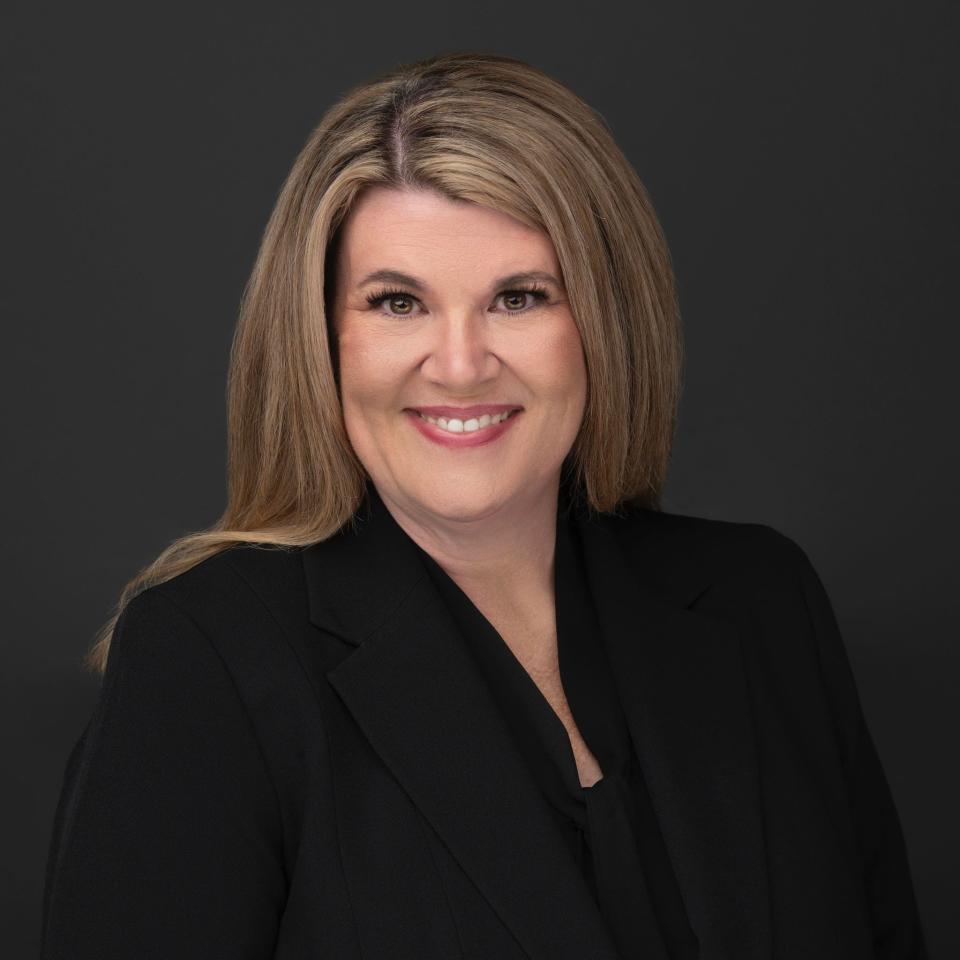Former ADA Jenny Parker to run for Chatham County District Attorney
Jenny Parker, a former assistant district attorney, announced her candidacy for the top job on Facebook on June 30. The seat for Chatham County District Attorney is on the November 2024 ballot.
Parker aims to supplant current DA Shalena Cook Jones, her former boss, who has faced scrutiny since taking office in 2021 over staff shortages exacerbated by an exodus of seasoned attorneys and heavy workloads caused by a backlog of cases. Another former ADA who also has announced his candidacy, Anthony Burton, has accused Jones of fostering a discriminatory culture within the office.
Hailing from Cordele, Georgia, Parker graduated with a bachelor’s degree and a law degree from the University of Georgia in 1999. From May 2000 through November 2021, Parker prosecuted a range of crimes, including misdemeanors and felonies. She served as chief assistant district attorney for Chatham County until leaving in 2022. Since then, Parker has served as an assistant district attorney in the Ogeechee Judicial Circuit, which includes Effingham, Bulloch and Screven counties.

Parker discussed her vision for the office should she succeed Jones, centering a platform footed in early-intervention and diversion programs, hiring experienced prosecutors and maintaining transparency.
In Session: Assistant district attorney argues Leilani Simon's actions constitute murder
More: Former Chatham County assistant district attorney responds to discrimination lawsuit
SMN: On what issues are you running?
I would share a lot of [Shalena’s] progressive values, in the sense that I think we should expand early-intervention and diversion programs for non-violent offenders, first-time offenders and youthful offenders.
There's not a certain class of crime I would not prosecute. The main resources of a DA should be to handle cases involving people who are actually dangerous to the community, such as murders, sexual assaults and crimes against children. So, in recorder's court, the goal would be to move to play out as many of those cases as possible, right in the beginning or dismiss, them if appropriate.
Another way to deal with the high case backlog would be to expand those early-intervention and diversion programs for things like shoplifting, drug possession.
SMN: Why did you leave the District Attorney's office last November?
That’s a tough question. The office had become a difficult place to work. It got to a point where I felt like my abilities could be better used elsewhere.
The office is understaffed. My job description changed eight times over the course of two years. It felt like it became difficult to get the work done that needed to be done. It became not workable for me.
SMN: How would you lead differently?
My first priority would be to bring back as many of those experienced attorneys as I could. I have commitments from about 10 of them who would come back if I’m elected. That would make an immediate difference.
There's no longer a Special Victims Unit, which I think is really important. There's one person still in the office handling crimes against children, but he's leaving next month. So, those cases are going to prosecutors who aren't specially trained to handle them. Right now, there's no director of the victim witness program. And those cases take a lot of specialized knowledge to be handled well. That's something that needs to be remedied.
SMN: How would you handle officer-involved shootings?
Part of it is bringing an experienced team of prosecutors back, having people that have been prosecutors for 10 to 15 years. Those people can review a case like that, know what they need to look and know what questions they need to ask.
I think the community should be aware when a decision is made on those, unless there's some exceptionally complicated reason, within about six months, or about 180 days.
That decision [to indict officers or not] should always be based on the facts and the law and every specific case. And if the law was broken, they should be prosecuted. If it wasn't broken, they shouldn't be prosecuted.
SMN: How do you approach prosecuting murder cases?
Every case is different, but I think to have successful murder prosecutions, it has to start the minute the murder happens. When I was the chief assistant, I frequently responded to murder scenes.
You start working with law enforcement from the minute it happens to help build really strong cases. That way, you know what search warrants they're seeking, and you know who the witnesses are from the very beginning. When you have that kind of relationship, you build cases, then nothing comes as a surprise later on. That's how you have successful murder prosecutions. If you don't have the evidence, you don't prosecute a case.
We would do training for law enforcement regularly, which is something that is not happening now. In the past, we had officers taking part in training with almost every law enforcement agency in the county. When I was part of the Special Victims Unit, we would regularly do training for Savannah as part of their annual training, which every single Savannah PD officer has to go to.
It's all about relationships and trust.
Drew Favakeh is the public safety and courts reporter for Savannah Morning News. You can reach him at AFavakeh@Savannahnow.com.
This article originally appeared on Savannah Morning News: Former Chatham County Assistant District Attorney Announces Run for Top Job

